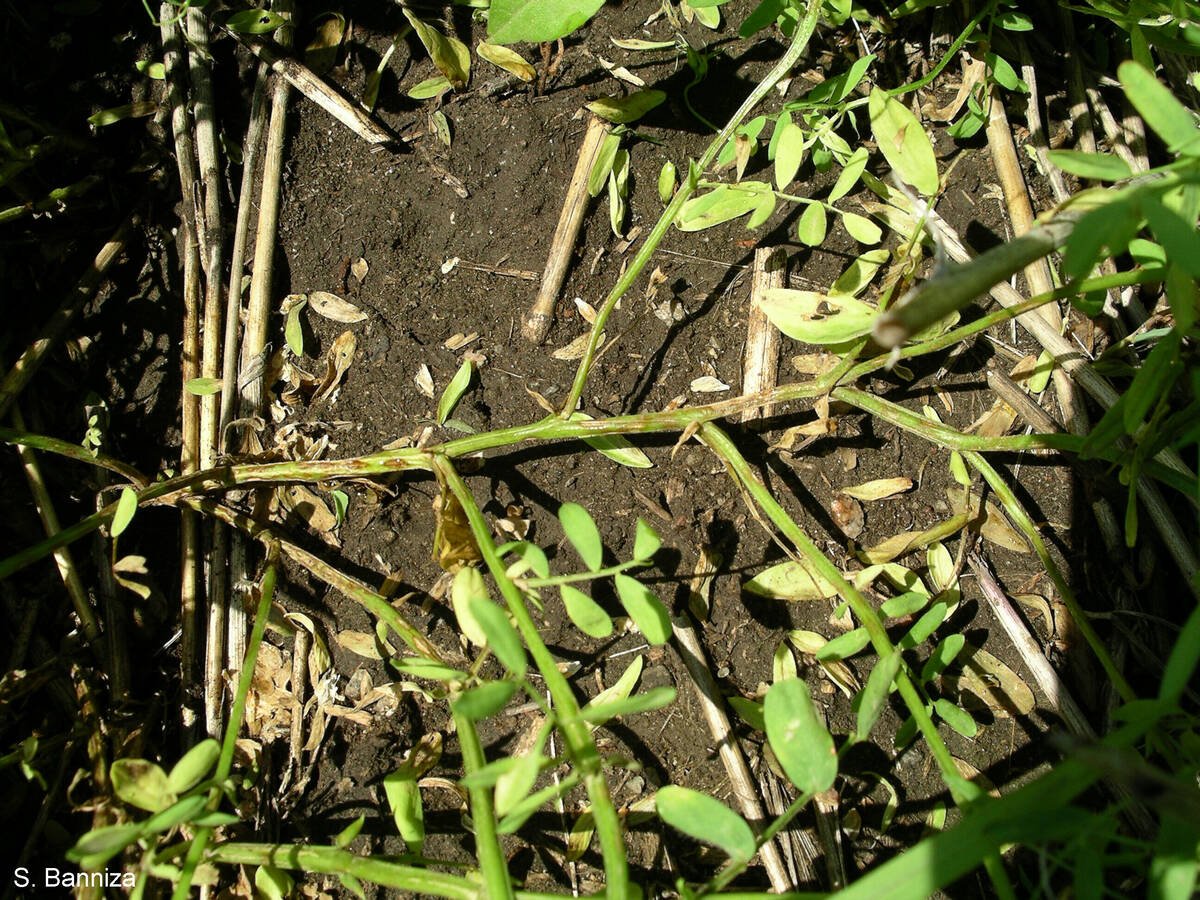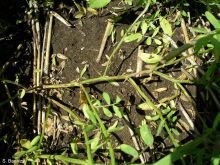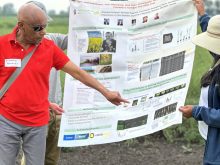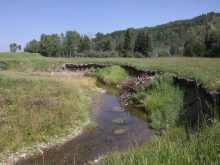Managing farm property for non-farming landowners is big business in the United States, but has been slow to catch on in Canada.
In this country, non-farming landowners often rent their land to a trusted neighbor or hire a local lawyer to draw up an agreement with a tenant.
Some American and Canadian farm management experts predict that could soon change.
The rising age of the average farmer, a shift toward large-scale farm operations and the increasingly technical aspect of farming mean more people are seeking the services of professional farmland property managers.
Read Also

Anthracnose resistant lentils within reach
The risk that anthracnose poses to lentils continues to be high priority for the pulse sector.
John Ross is the executive vice-president of the American Society of Farm Managers and Rural Appraisers. Established in 1929, the association has 3,000 members, with 1,200 professional managers handling more than 15 million acres of cropland in the U.S.
In the 1960s, the group was active exclusively in the Midwest where most of the farming was done by a large number of small farm operators.
Now, the Great Plains region of Montana, Idaho and California is catching up. The U.S. association had only four members from California six years ago. Now there are 19.
And if Ross’ predictions are right, Canada won’t be far behind.
“We’re seeing generations who no longer want to farm, but want to keep the farm in the family,” he said, predicting by 1997 almost half of the farmland in the United States will be owned by someone other than the person who farms it.
“There is a need and demand for professional farm managers because landowners want someone independent of the farm operation to make sure their objectives are met.”
Ted Ford, a financial management specialist with Alberta Agriculture, agrees.
“It is not big yet, but I believe it will be,” Ford said, adding he doesn’t know of any Alberta companies offering the service.
“The ministry offers an information service, but for a fee this new service would act as a go-between,” he said.
“There is nothing of size here yet, but I believe it will happen.”
The predictions are good news for a new farm property management service in Saskatchewan that says it could be the answer for non-farming landowners who are slipping through the cracks.
Bob Barton, co-owner of Yorkton-based Tonarr Land & Grain Company which opened in May, said women – usually the spouses and children of deceased farmers – make up the largest group of people forced to sell agricultural property either because they can’t or don’t want to manage it.
“The experience can be intimidating and a lot of people end up selling because they have no idea how to manage a farm,” Barton said. “Women are generally affected the most.”
Barton and co-owner Greg Barr say they will tailor the management service depending on what the client wants. The company offers to set up customized lease agreements agreeable to both landlord and tenant, help find the appropriate farmer to rent the land, collect rental payments, monitor farming practices and keep a crop history of all land and give advice on crop yield potential and possible hazards. Tonarr also offers a grain brokerage service.
Agreements involving money matters should be documented and thorough, Barton said, something often overlooked when a farmer rents land to a neighbor.
“Whenever money transfers hands, it seems like too much to one person and not enough to the other,” Barton said.
“We help make sure the landlord and tenant are on the same page, and then keep it that way.”
Barton said the service can be an easy out if farmers have to decide which neighbor to rent their land to.
“If a farmer wants to retire, he needs to decide which neighbor to rent his land to without making enemies,” Barton said.
“That’s where we take over.”
Morlee Ayers, a farm management agrologist with Saskatchewan Agriculture, said companies like Tonarr provide an important service in the face of conflict, but in most cases farmers get the help they need from local lawyers and accountants.
The head of Manitoba Agriculture’s farm management branch said he hasn’t heard of any farmland property management services in that province.
“We can help out by providing background information on issues they need to know about, but after that we advise them to talk to a lawyer,” said Peter Coughler. “Mostly people just seem to do it themselves.”
Some private agricultural consultants are eyeing the sector as an opportunity for future growth.
Bruce Simpson, part-owner of the Edmonton agriculture consulting firm Serecon, said only 10 percent of his business involves managing land for absentee landlords. Most clients are European.
“It sounds like an interesting service that has a lot of potential.”
Garry Bresee, an agriculture consultant based in Red Deer, Alta., doesn’t think there’s much demand for professional farmland property management services in the market.
“A lot of land is farmed for urban landlords by a neighbor or relative they rely on,” he said. “They don’t feel a need for outside professional management services.”
Farm experience
But Ross said accountants and lawyers can’t take the place of professional accredited farm managers.
“The difference here is that a professional farm manager is an agriculturist.”
Tonarr offers an extension of that service by helping set up crop sharing agreements. They visit the site twice a year with the tenant to check out management, make yield estimates and maintain field histories.
The company is paid with a percentage of the rent collected for clients. Barton said the firm recently began distributing information in funeral homes to help farm families manage sudden estates over the short term.
Members of the American farm managers’ association are governed by strict standards, regulations and ethics guidelines, according to Ross. An accredited farm manager must be registered with the state real estate association, complete 130 hours of classroom training and have five years experience.
















